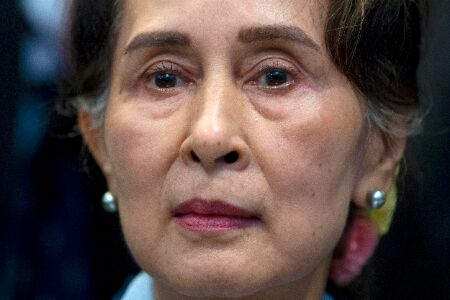Rising tensions

It's been two weeks since the military junta of Myanmar deposed the civilian government of Aung Su Kyi. If the military expected a quick rollover from the public into utter compliance, then the unfolding situation is a failure on their part. Hundreds of thousands continue to gather in defiance of the feared and all-powerful military junta which has kept a tight grip on the reins of the nation for decades now. Wary of growing waves of dissidence and cornered by international repudiation, the military has slowly dialled up their campaign of control. The internet was snapped, new curfew rules put in place and authorities are being accused of nabbing people using the cover of night as hundreds have been detained. To add to the military's woes, this act of disobedience is not simply limited to protests as civil servants are also organising strikes which are hampering the functioning of the government.
While there have been no significant reports of violence, the situation is a powder keg with an undeniable possibility of being set-off as this civilian-military face-off continues. In the latest development, the military has moved in armoured vehicles into state capitals across Myanmar. After a period when the internet was restored, it has once again been suspended. All this comes at a time when Suu Kyi's detention period for the crime of illegally importing walkie-talkies is coming to an end. While the military may no doubt seek to extend the period of imprisonment, it is unknown what reasoning they will ultimately employ as justification.
It has been noted by some that the circumstances at the present are similar to those that happened in 2011 when an unrelenting push towards democracy finally forced the military dictatorship to step back. That step back was only achieved as a result of bloody riots. There are worrying patterns as well of previous military tactics being employed. The military recently announced that it would be freeing thousands of prisoners in a move that is consistent with either vision of a democratic state. Opponents of junta worry that what the military is actually doing is releasing criminal elements into the populace as a sort of terror tactic as they have done before to create a situation of growing chaos that they can then cite as proof of the need for them to take further control of the nation.
This is but one part of the design by which the military seeks to establish the legitimacy of its cause as the sole guardian of democracy. Unlike before when the military preferred to rule in the shadows and not engage the world community or media, this time is different. The junta has spent quite some time since 2011 changing its image as an official body with foreign engagement. This is why the coup was accompanied by a flurry of letters being sent out to the world leaders explaining why the coup was necessary. This is also why the government has threatened to crack down on any media outlet operating within its borders that refers to the military takeover as a coup.
While the military is facing a general wave of condemnation and even a few sanctions alongside the threat of many more, it has its supporters and sympathisers as well. Reports say that the military leadership has reached out to the leaders of Thailand for support. The current Thai PM Prayuth Chan-Ocha himself seized power in a coup and has since been accused of holding on to power through compromising the electoral system of Thailand. Of course, the Thai Foreign Ministry has pushed back on Reuters reports that allude to such support as being completely false.
But the big supporters on the international stage that have kept Myanmar 'safe' from international pressure are Russia and China who recommended a watering down of a UN Human Rights Council resolution against Myanmar. Both Russia and China have spoken against the internalisation of the coup while referring to it as a domestic matter. In regards to Russia, this may simply be a stand against western interests that Russia often takes in the international forum. But China has a clear strategic objective of bringing Myanmar further into its geostrategic orbit.
So what happens now? It's hard to say though most experts have ruled out overt sanctions as an answer. In the long term, not only will such sanctions not compel the military but will also likely affect the citizens severely as they reel from a pandemic and economic crisis as well. What is clear is that the situation cannot easily or at all return to the uneasy military-civilian peace that Myanmar had since 2011. The military has breached its power-sharing agreement and will find it hard to restore public confidence by bringing it back.



